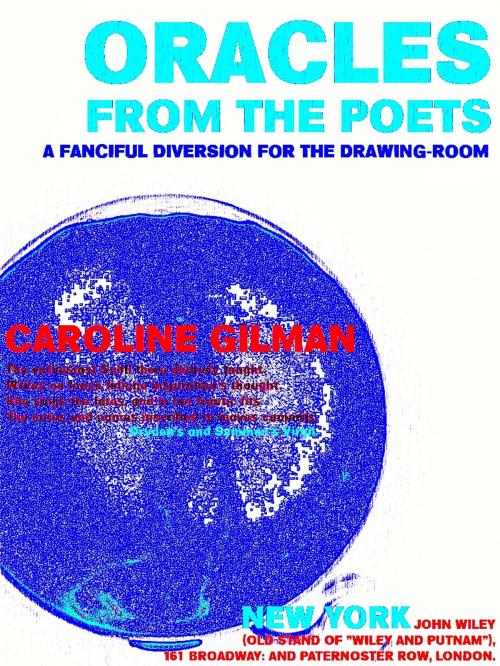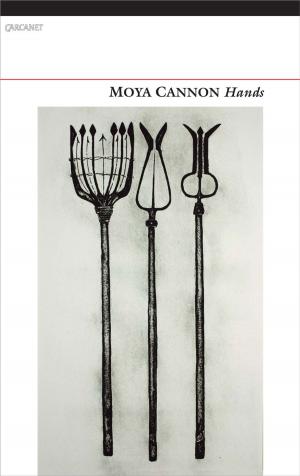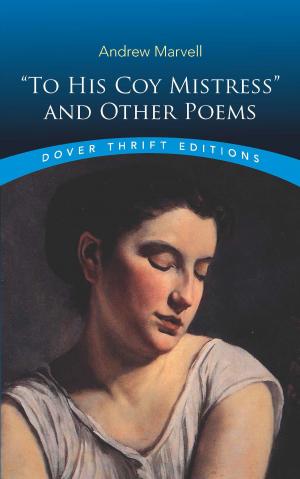Oracles from the Poets
A Fanciful Diversion for the Drawing Room
Fiction & Literature, Poetry, Continental European, British & Irish| Author: | Caroline Gilman | ISBN: | 1230000278030 |
| Publisher: | NEW YORK: JOHN WILEY | Publication: | November 3, 2014 |
| Imprint: | Language: | English |
| Author: | Caroline Gilman |
| ISBN: | 1230000278030 |
| Publisher: | NEW YORK: JOHN WILEY |
| Publication: | November 3, 2014 |
| Imprint: | |
| Language: | English |
Example in this ebook
I was led to arrange "The Oracles from the Poets," by observing the vivid interest taken by persons of all ages in a very common-place Fortune-Teller in the hands of a young girl. It occurred to me that I might avail myself of this love of the mysterious, for the intellectual enjoyment of my family circle.
Instead, however, of the pastime of a few days, it has been the work of every leisure moment for six months. The first movement was the pebble thrown into the stream; circle after circle formed, until I found, with old Thomas Heywood,
"My pen was dipt
As well in opening each hid manuscript,
As tracts more vulgar, whether read or sung
In our domestic or more foreign tongue."
How rich these six months have been in the purest and highest enjoyment, I will not stop to say; but to be allowed to float in such an atmosphere, buoyed up with the sweetest sympathies of friends, may be conceived to be no common happiness. And now, with the hope of communicating a portion of this pleasure more extensively, I yield this volume up as a public offering, for the advancement of those rational social enjoyments which seem to belong to the moral movement of the age.
I do not know how far early associations may have influenced me, but I distinctly recollect the first Oracle of my childhood. At the age of eight years I attended a female seminary in a village. The classes were allowed a half hour for recreation, and they usually played on the green within view of the academy building. One day I observed a group of girls of the senior class pass beyond the bounds and enter the church, which was opened for some approaching occasional service. I followed quietly. They walked through the aisle with agitated whispers, and ascended to the pulpit. Then each, in turn, opening the large Bible, laid a finger, with closed eyes, on a verse, and read it aloud, as indicating her fate or character.
I well remember the eagerness with which I listened on the stairs, for I was afraid to crowd into the pulpit with the big girls. As they retired, I entered. I can recall the timid feeling with which I glanced round the shadowy building, the awe with which I closed my eyes and placed my small finger on the broad page, and the faith with which I read my Oracle.
I must make an early apology for venturing to alter the tenses of authors so as to conform to answers. I tried the method of literal extracts, but they were deficient in spirit and directness. I can now only warn my readers not to quote the Oracles habitually, as exact transcripts, but resort to the originals. I have trembled as if it were sacrilege to turn thus the streams of Helicon into this little channel, but I hope the evil may be balanced by the increased acquaintance of many with slighted authors.
I have not allowed myself to select from periodicals, though American journals contain perhaps more favorable specimens of our literature than the published volumes to which I have felt bound to confine myself.
My selections have extended so far beyond the limits of my plan, that I propose furnishing another volume, in the course of the year, with additional questions, including translations from popular authors. One question in the present volume, To what have you a distaste or aversion? is, I think, nearly exhausted, while its opposite, What gratifies your taste or affections? presents still an ample field for gleaning. Will this furnish any argument against those ascetics, who think misery preponderates over happiness? One fanciful question in the succeeding volume will be, What is the name of your Lady-love? and another, Of him who loves you?
I shall consider with respectful attention friendly suggestions made to me directly, or through my publishers, preparatory to the arrangement of another volume, particularly in bringing to view any poet, who, by accident, may have escaped attention.
To be continue in this ebook...............................................................................................................
Example in this ebook
I was led to arrange "The Oracles from the Poets," by observing the vivid interest taken by persons of all ages in a very common-place Fortune-Teller in the hands of a young girl. It occurred to me that I might avail myself of this love of the mysterious, for the intellectual enjoyment of my family circle.
Instead, however, of the pastime of a few days, it has been the work of every leisure moment for six months. The first movement was the pebble thrown into the stream; circle after circle formed, until I found, with old Thomas Heywood,
"My pen was dipt
As well in opening each hid manuscript,
As tracts more vulgar, whether read or sung
In our domestic or more foreign tongue."
How rich these six months have been in the purest and highest enjoyment, I will not stop to say; but to be allowed to float in such an atmosphere, buoyed up with the sweetest sympathies of friends, may be conceived to be no common happiness. And now, with the hope of communicating a portion of this pleasure more extensively, I yield this volume up as a public offering, for the advancement of those rational social enjoyments which seem to belong to the moral movement of the age.
I do not know how far early associations may have influenced me, but I distinctly recollect the first Oracle of my childhood. At the age of eight years I attended a female seminary in a village. The classes were allowed a half hour for recreation, and they usually played on the green within view of the academy building. One day I observed a group of girls of the senior class pass beyond the bounds and enter the church, which was opened for some approaching occasional service. I followed quietly. They walked through the aisle with agitated whispers, and ascended to the pulpit. Then each, in turn, opening the large Bible, laid a finger, with closed eyes, on a verse, and read it aloud, as indicating her fate or character.
I well remember the eagerness with which I listened on the stairs, for I was afraid to crowd into the pulpit with the big girls. As they retired, I entered. I can recall the timid feeling with which I glanced round the shadowy building, the awe with which I closed my eyes and placed my small finger on the broad page, and the faith with which I read my Oracle.
I must make an early apology for venturing to alter the tenses of authors so as to conform to answers. I tried the method of literal extracts, but they were deficient in spirit and directness. I can now only warn my readers not to quote the Oracles habitually, as exact transcripts, but resort to the originals. I have trembled as if it were sacrilege to turn thus the streams of Helicon into this little channel, but I hope the evil may be balanced by the increased acquaintance of many with slighted authors.
I have not allowed myself to select from periodicals, though American journals contain perhaps more favorable specimens of our literature than the published volumes to which I have felt bound to confine myself.
My selections have extended so far beyond the limits of my plan, that I propose furnishing another volume, in the course of the year, with additional questions, including translations from popular authors. One question in the present volume, To what have you a distaste or aversion? is, I think, nearly exhausted, while its opposite, What gratifies your taste or affections? presents still an ample field for gleaning. Will this furnish any argument against those ascetics, who think misery preponderates over happiness? One fanciful question in the succeeding volume will be, What is the name of your Lady-love? and another, Of him who loves you?
I shall consider with respectful attention friendly suggestions made to me directly, or through my publishers, preparatory to the arrangement of another volume, particularly in bringing to view any poet, who, by accident, may have escaped attention.
To be continue in this ebook...............................................................................................................















